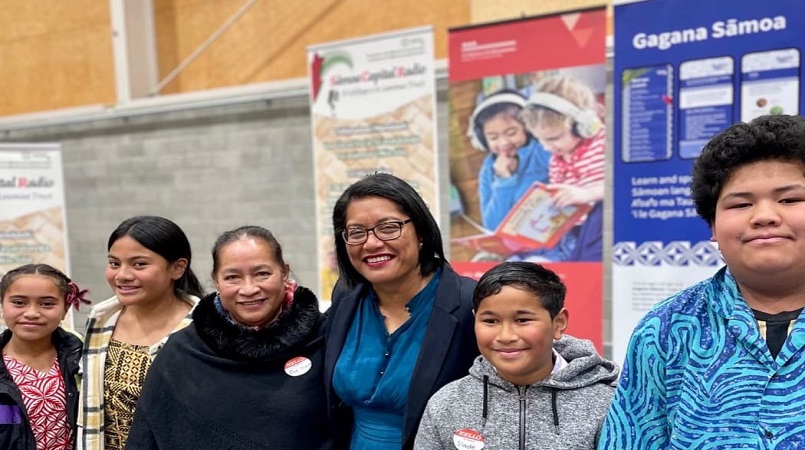
A new language app developed for Gagana Samoa - the Samoan language - has been launched in New Zealand.
Samoa Capital Radio in Wellington, the oldest Samoan radio station in Aotearoa, is behind the production and development of the app.
Samoa's Acting High Commissioner to New Zealand, Robert Niko Aiono, said it would help to bridge the gap for people wanting to learn more about the language.
"They've made this app available and it caters for a lot of Samoans who are born in New Zealand," he said.
"Not only in New Zealand but everywhere else in the world."
With Samoan being the third-most spoken language in New Zealand, Samoa Capital Radio initially thought language classes delivered on Zoom was the best way to draw in learners.
However, it was decided developing an app would be better as it was a tool that can be accessed anywhere, any time.
Work on the software began in January and according to the radio station's social media manager, Murray Faivalu, it was a "labour of love".
"We started to get a team together; get an advisory panel to advise us because no one can claim that they've got the knowledge of everything in terms of the Samoan language," Faivalu said.
"We had two lecturers from the National University of Samoa, one of them being Dr Niusila Eteuati who was able to bring an academic perspective to the language; we got one of the teachers from Samoa who's teaching the language and the Language Commission."
Faivalu said he hopes the app helps users overcome their shyness when trying to converse or pray in Samoan.
"We've got a big population of people who associate as Samoans and a lot of them are young," he said.
"A lot of them may know some Samoan but being able to speak it is a whole different thing.
"Some of the young ones get embarrassed when they go up to do the prayer at family gatherings."
The app covers the most basic of the Samoan language - from the spelling, grammar, placement of macrons and glottal stops. Audio is also built in so users can hear how words are meant to be pronounced.
"When you read Samoan on its own, you lose the meaning of it - so unless you have those glottal stops, the macrons, you won't get the actual meaning of what you're trying to say."
